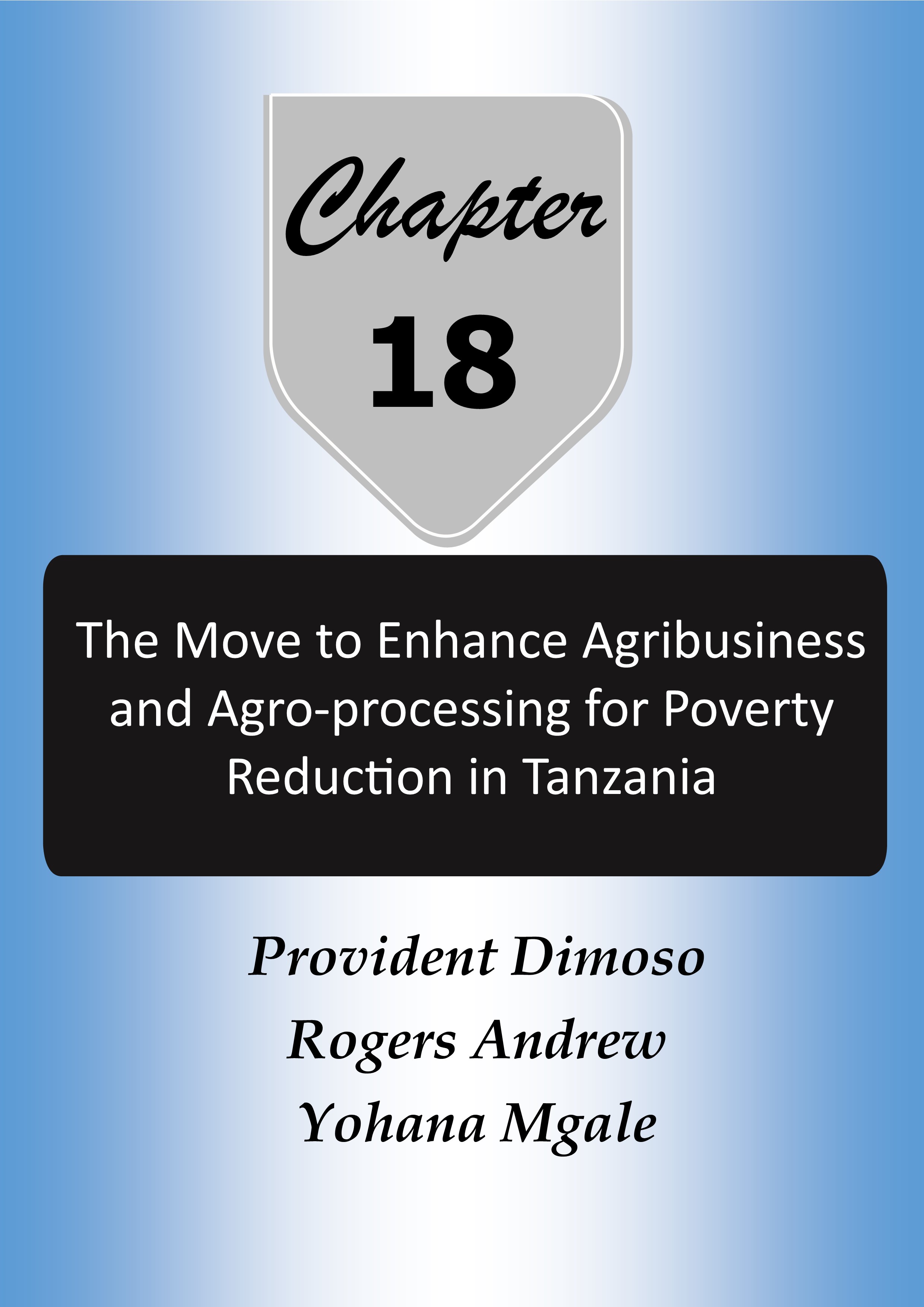The Move to Enhance Agribusiness and Agro-processing for Poverty Reduction in Tanzania
Abstract
The importance of the agricultural sector cannot be overemphasized in Tanzania.
The sector employs over 65 percent of workforce, contributes about 70 percent of the income of the people in the rural areas, 27.7percent of GDP and contributes about 24.1 percent of export earnings as well as 65 percent of industrial raw materials. Despite its contribution, Agriculture is facing a number of challenges including, inefficient production, climate change, use of rudimentary technology, price variability, inadequate extension services, unsatisfactory condition of rural roads, high transport costs, unreliable power supply, difficult access to finance; limited markets and inadequate professional human resources. In the context of these challenges the Blue economy may be considered as a possible avenue for development. Generally is recognized that the late President John Magufuli made efforts to improve Agro-processing and agribusiness as an approach for development. Following the untimely death of President John Magufuli, the then Vice President Samia Suluhu Hassan took over the Leadership of the Nation. President Samia Suluhu Hassan has consistently supported agribusiness by proceeding with implementation of strategic projects initiated by the previous government, including construction of Standard Gauge Railway and Mwalimu Nyerere Hydropower Station expected to have installed a capacity of 2,115 MW. President Samia Suluhu Hassan has improved the business environment and strengthened international relations with intention of achieving good markets.
The President has promised to encourage production of improved seeds, bolster research and extension services as well as strengthen the financial services especially in connection with the agricultural sector. Because of climate change it is important to reduce dependency on rain-fed agriculture. The President has made right decision to put emphasis on expansion of irrigation infrastructure and introduction of user fees to ensure sustainability. It is recommended that more is to be done to enhance human resources management, expansion and making irrigation schemes sustainable, bolstering productivity through improved technology, strengthen the transport infrastructures and market expansion.
Collections
- Book Chapters [18]

